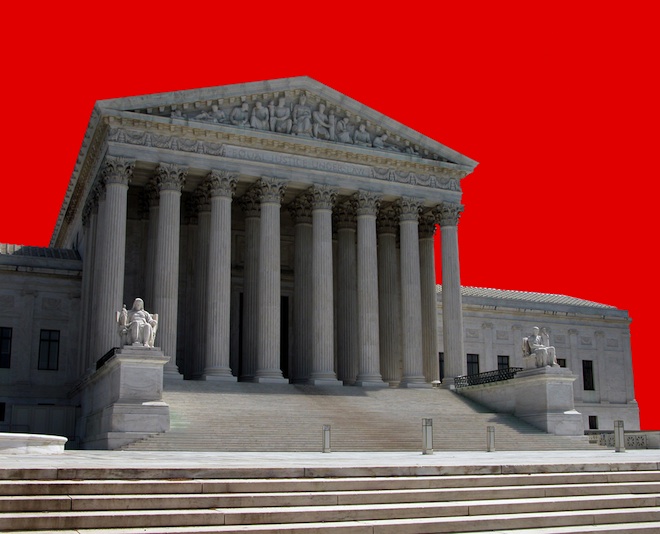The deck seems stacked for a landmark Supreme Court decision against the use of racial preference in college admissions, experts tell TPM. The scope of the upcoming Fisher v. University of Texas ruling is uncertain, but barring a shocking change of heart from one of the five Republican-appointed justices, the high court seems set to deal a blow to Affirmative Action.
This fall, for the first time since 2003, the Supreme Court will hear a case that cuts to the heart of Affirmative Action in higher education, brought by a white woman who said she was unfairly denied admission to the University of Texas-Austin. More importantly, it will be the first time the high court has taken a case on this issue while a majority of the sitting justices have expressed misgivings with racial preferences in education. To add to that, Elena Kagan, one of the justices seen as sympathetic to the cause, has recused herself.
“I think the chances for Affirmative Action are really not good,” Adam Winkler, a constitutional law professor at UCLA, told TPM. “Without Kagan there are only three solid votes for continuing Affirmative Action in higher education. Those aren’t good odds.”
Brian Fitzpatrick, a professor of law at Vanderbilt University, told TPM that “there are five solid votes against Affirmative Action” on the bench.
The court is expected to issue either a narrow ruling or a broad ruling against race-based admissions. It could simply rule that UT’s policy is a violation of acceptable use of racial preference, which would not directly affect other colleges but would provide ammunition to chip away at other Affirmative Action systems. Or it might go big and overrule the 2003 Grutter v. Bollinger decision that’s the linchpin of Affirmative Action in higher education.
“If the Supreme Court holds that Grutter should be overturned,” Fitzpatrick said, “it would pretty much end Affirmative Action in every school in the country, public or private.” He said it’s possible such a ruling could even apply to workplaces, although he predicted that the court is more likely to issue a narrow ruling against UT’s race-based admission policy.
Winkler, however, said the “chances are pretty good” that the five right-leaning justices vote to quash Grutter entirely.
The court’s third option, to uphold UT’s use of race in admissions, is seen as highly unlikely given that it has swung against Affirmative Action ever since Justice Samuel Alito replaced Justice Sandra Day O’Connor in 2006.
An important thing to note is that the plaintiff in Fisher has asked the Supreme Court to reconsider Grutter itself. And the court accepted the case knowing that it would have no effect on the plaintiff, who is set to graduate from another college this year. That’s an indication that the justices are interested in revisiting the principles that went into the 2003 decision, which held 5-4 that colleges have compelling reason to consider race in the admissions process.
“One would have to imagine there’s a lot of interest among the conservative justices to end race-based Affirmative Action in higher education,” Winkler said. “Not only has the Roberts Court issued several rulings that suggest the court is uncomfortable with race-based programs, but the usual swing vote, Anthony Kennedy, seems clearly on the side of the opponents of Affirmative Action in this case.”
In a 2007 majority decision regarding racial integration in public schools, Chief Justice John Roberts famously declared, “The way to stop discrimination on the basis of race is to stop discriminating on the basis of race.”
No matter the outcome of Fisher, even the highest judicial authority in the land may not have supreme authority to preclude institutions from seeking diversity — at least in the near term.
“The nation’s elites want ethnic diversity in higher education and leadership and the workplace,” Frederick Lynch, a public policy professor at Claremont McKenna College and critic of Affirmative Action, told TPM. “And they will get it one way or the other.”
Photo from Jason Maehl / Shutterstock






